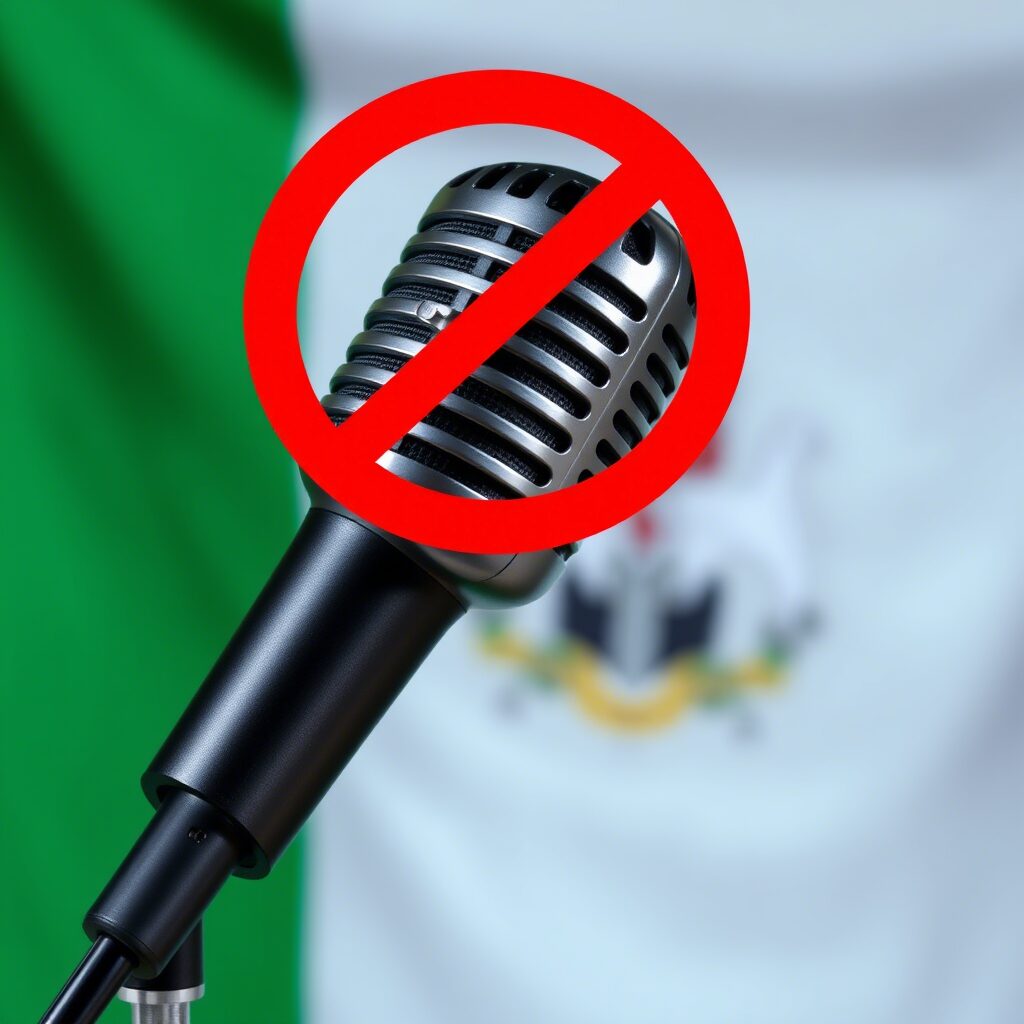Nigeria Bans Song Criticizing Tinubu, Fuels Free Speech Clash

A Song That Struck a Chord
Nigeria’s airwaves fell silent for a rap song that dared to challenge President Bola Tinubu. Authorities banned “Tell Your Papa,” a track criticizing the administration’s policies, from radio and television. The National Broadcasting Commission (NBC) issued the order, claiming the song violated decency standards. However, this move has sparked outrage among many Nigerians. For them, it’s not just about music—it’s about their right to speak freely in a democracy.
The song, by artist K-Solo, has swept through cities like Lagos and Abuja. Its lyrics hit hard, targeting fuel price hikes and joblessness. One line stands out: “Tell your papa, we no go wait forever.” For example, Chinedu Okoye, a young mechanic, feels the song speaks his truth. “It’s our struggle in words,” he said. Yet, the ban has left fans like him wondering why their voices are being muffled.
Censorship or Public Safety?
The NBC acted fast as “Tell Your Papa” climbed the charts. They argued its tone could stir unrest in Nigeria’s diverse society. But critics see this as an excuse. For instance, Amaka Nwosu, a media lawyer, called the ban censorship in disguise. She pointed out that Nigeria’s constitution protects free speech. Still, vague broadcasting laws let officials silence dissent with ease.
History backs her up. In the 1980s, Fela Kuti faced jail for his rebellious tunes. More recently, artists like Falz joined the 2020 #EndSARS protests, drawing government ire. Now, K-Solo faces similar heat. Despite the ban, he’s undeterred. “They can’t stop the streets,” he told fans at a Lagos event. Indeed, his defiance keeps the song alive in underground circles.
A Nation’s Economic Struggles
The ban shines a light on Tinubu’s presidency, which began with big promises in 2023. He vowed economic growth, but many Nigerians face tough times. Inflation has spiked, and the naira has weakened. For example, a bag of rice now costs twice as much as it did two years ago. Aisha Ibrahim, a mother of three, shared her pain. “I work hard, but we eat less,” she said. Songs like “Tell Your Papa” echo these hardships, which may explain the government’s swift reaction.
Social media has exploded with opinions. On X, some call the song a youth anthem, sharing clips widely. Others urge caution, fearing divisive lyrics. One user wrote, “Free speech isn’t a license to disrespect.” This split shows Nigeria’s delicate balance between critique and unity. Meanwhile, the ban has boosted the song’s fame. Vendors sell bootleg copies in markets, and fans trade files online.
Global Eyes on Nigeria
The world is watching. Human Rights Watch called the ban a threat to democracy, urging Nigeria to reverse it. They compared it to crackdowns in places like Uganda. With elections looming in 2026, some analysts see the ban as a move to control narratives. But this could backfire. “Banning a song makes it bigger,” said Tunde Alabi, a professor. He’s right—fans keep “Tell Your Papa” alive through secret gigs and shared playlists.
K-Solo, whose real name is Kayode Adebayo, stays bold. He performs at hidden venues and teases new tracks online. His fans, meanwhile, pass the song through Bluetooth and WhatsApp. The chorus, catchy yet fierce, lingers everywhere. It proves one thing: art finds a way. As Nigeria grapples with this issue, the song remains a symbol of resistance.
Music’s Power in Nigeria
Music has always shaped Nigeria’s soul. From highlife to Afrobeats, it reflects joy and pain. “Tell Your Papa” fits this tradition, giving voice to the frustrated. By banning it, authorities may have misjudged its power. For every silenced station, someone hums the tune. DJs sneak it into sets, and traders blast it in markets. The airwaves are quiet, but the streets are loud.
In Lagos, life pulses on. Bikes zip through traffic, and hawkers shout their wares. Somewhere, friends share a phone, playing the banned song. Its message—urgent and real—cuts through the noise. For K-Solo and his fans, this fight is bigger than music. It’s about a nation’s right to be heard. Nigeria’s story, like its songs, won’t stay silent.

